If a picture has a red border, move the cursor over it to see an alternative view.
Japan, March–April 2007
Tuesday 3 April
Day trip to Nara, stopping on route at Nanzen-ji. We visited the Kasuga Shintō shrine and the Todai-ji Buddhist temple. This contains the Daibutsu-den Hall, claimed to be the largest wooden building in the world, which houses an enormous bronze Buddha. Back in Kyoto, we walked along the Tetsugaku-no-Michi (Path of Philosophy) as the sun was setting.
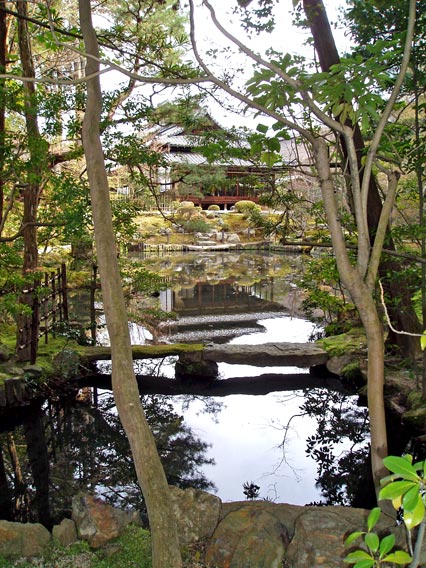
Carp pond in the Tenju-an temple garden at Nanzen-ji.
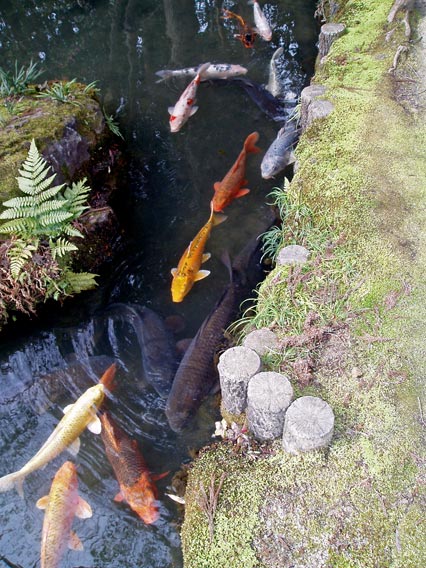
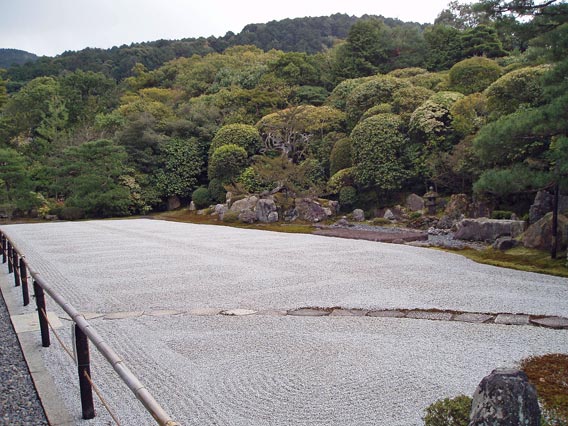
Zen garden at Konchi-in temple (Nanzen-ji). Like all these minimalist gardens, it is designed to be framed by the backdrop of hills in the landscape beyond.
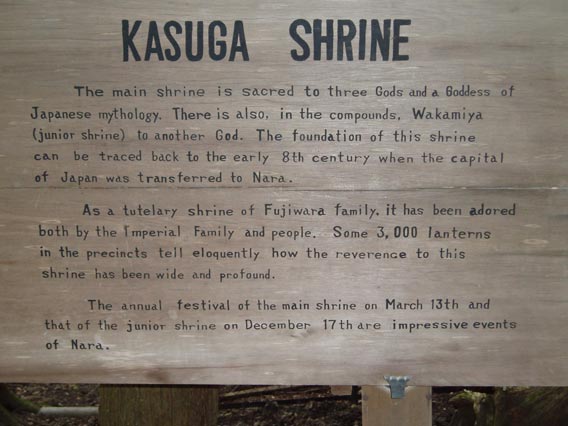
Notice board by the entrance to the Kasuga Shintō shrine in Nara.
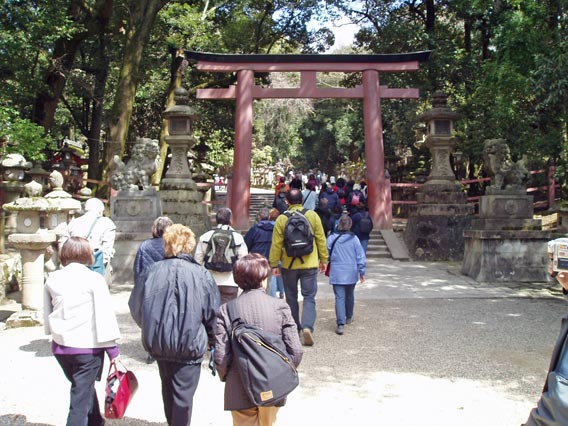
Avenue up to the Kasuga shrine, lined on both sides by stone lanterns.
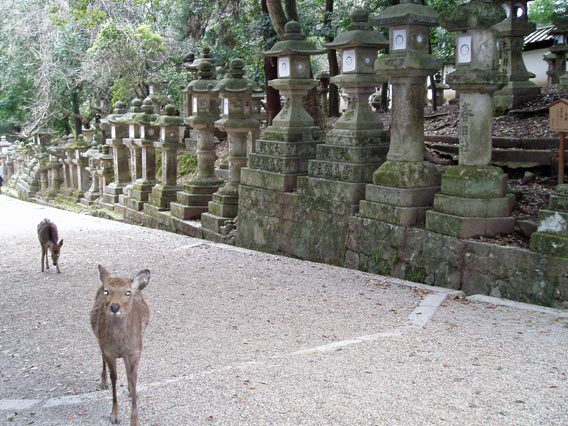
In addition to the lanterns, the avenue is lined with tame deer (traditionally believed to be messengers from the gods, and now officially designated as National Treasures).
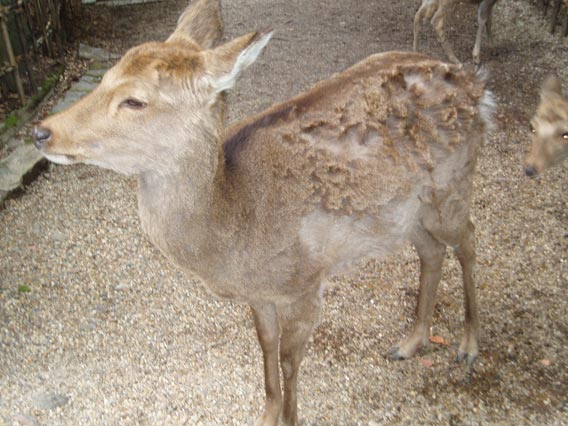
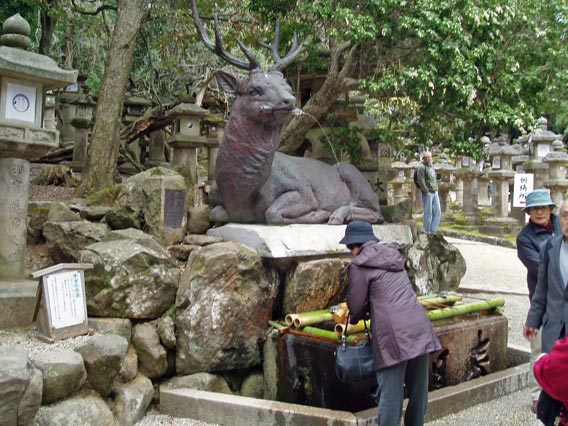
Pilgrims must ceremonially wash their hands at this fountain before approaching the shrine.
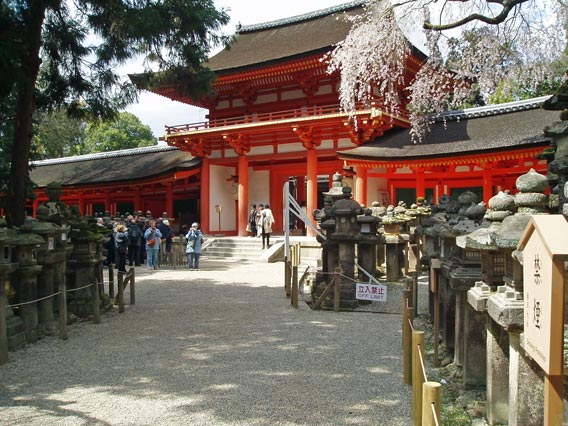
Main entrance to the shrine.
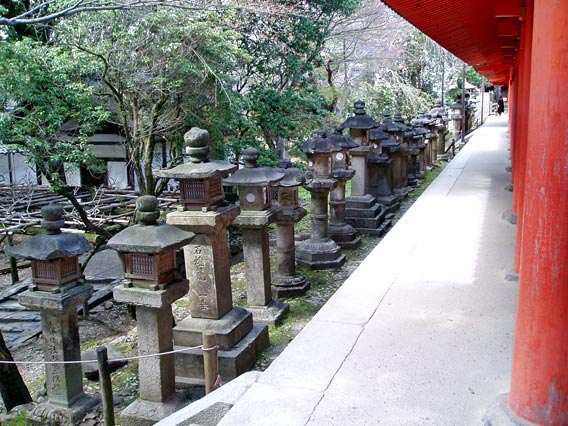
More lanterns, stone and metal, around the shrine.
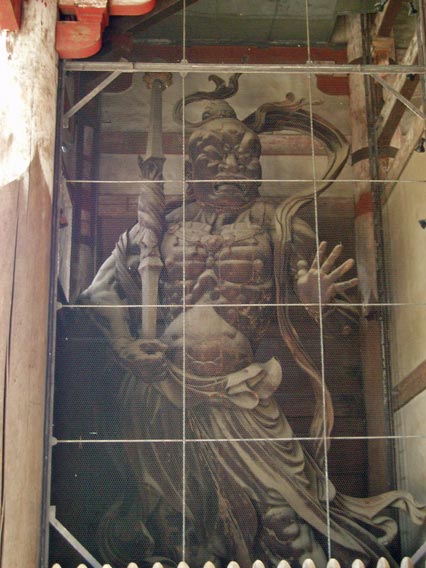
One of the impressive Guardian statues, in the gatehouse of the the Todai-ji temple.
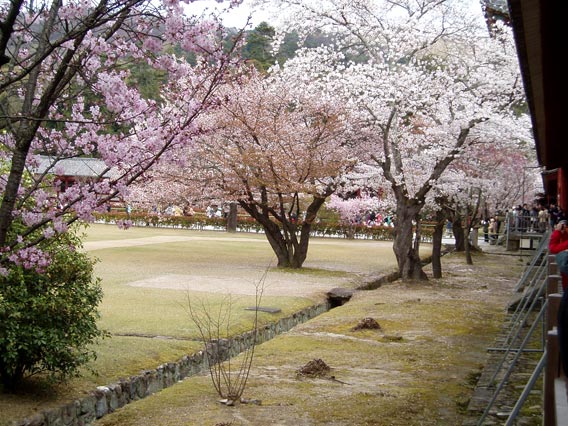
The courtyard at Daibutsu-den.
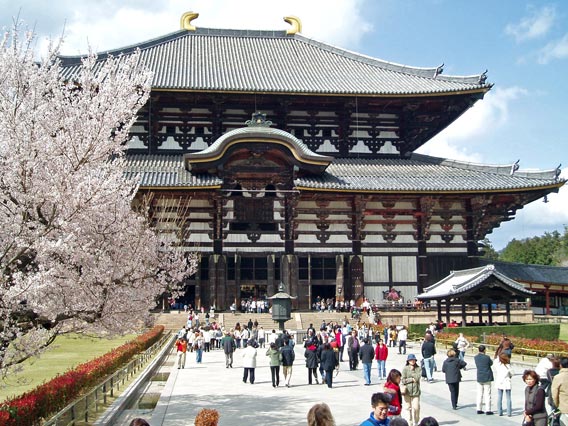
Daibutsu-den (the world's largest wooden building).
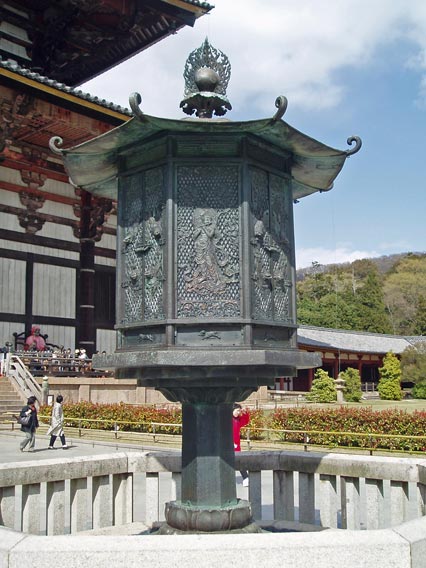
The great bronze lantern in front of Daibutsu-den.
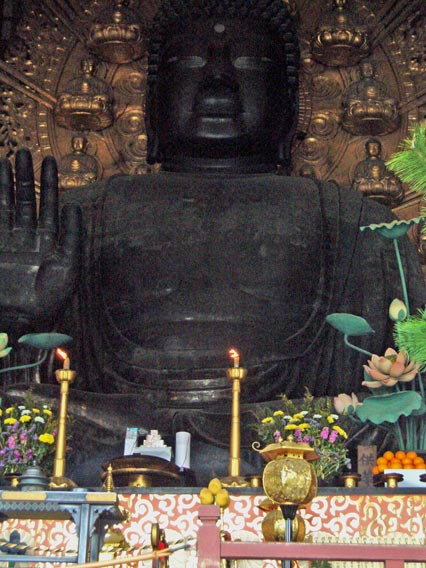
16-metre high bronze statue of the Buddha, completed in 751 A.D..
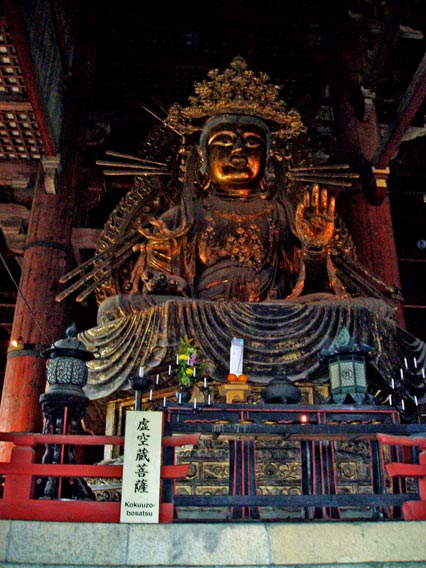
Also in Daibutsu-den, a statue of Kannon (Goddess of Mercy).
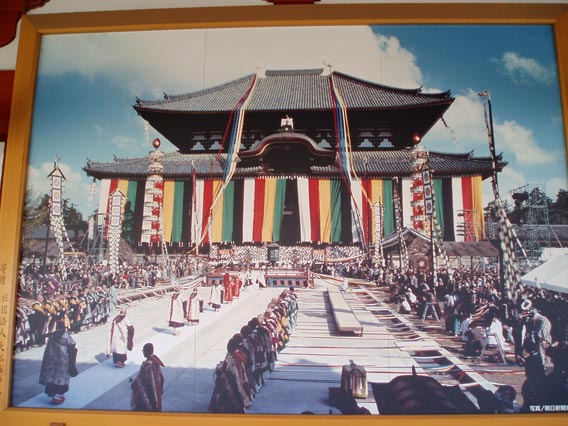
Photo of a framed picture in the colonnade at Daibutsu-den, showing the building decorated with banners for a festival.
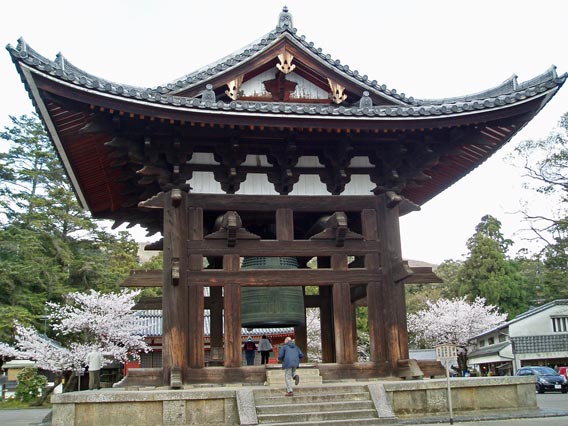
The great temple bell at Todai-ji.
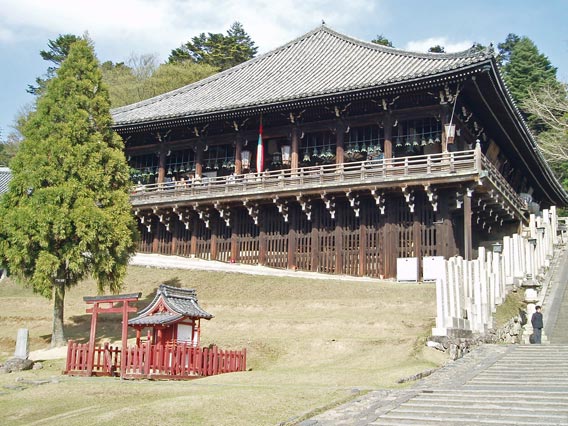
Nigatsu-do (February Hall), one of several buildings at Todai-ji dedicated to the months of the year..
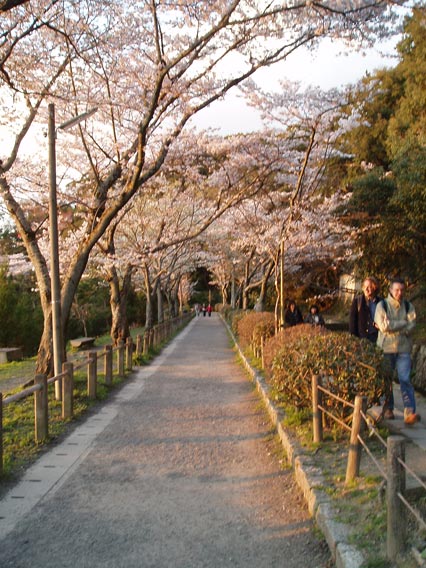
Philosopher's Walk, Kyoto, at sunset.
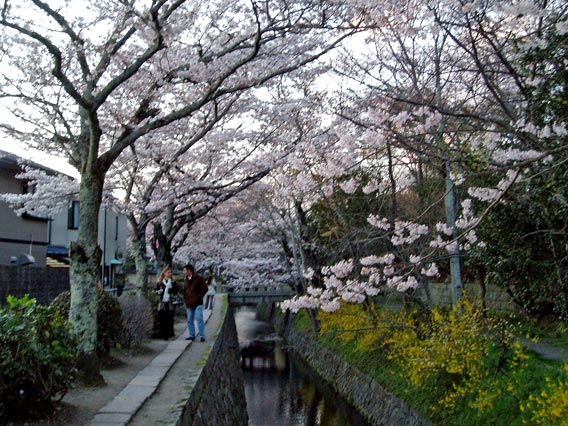
Further along Philosopher's Walk. The cherry trees over the canal were at their very best.

Dinner in Kyoto.
